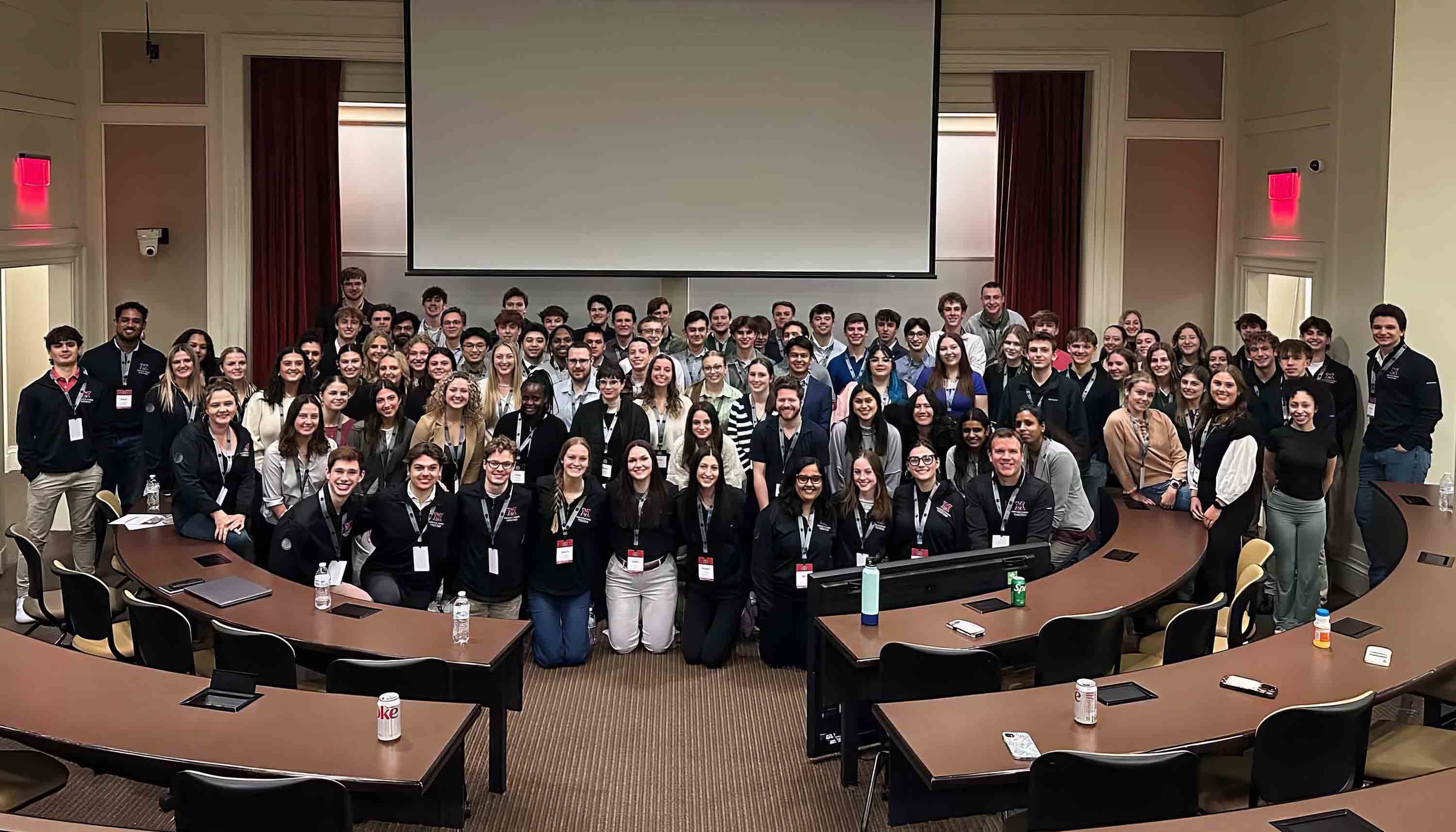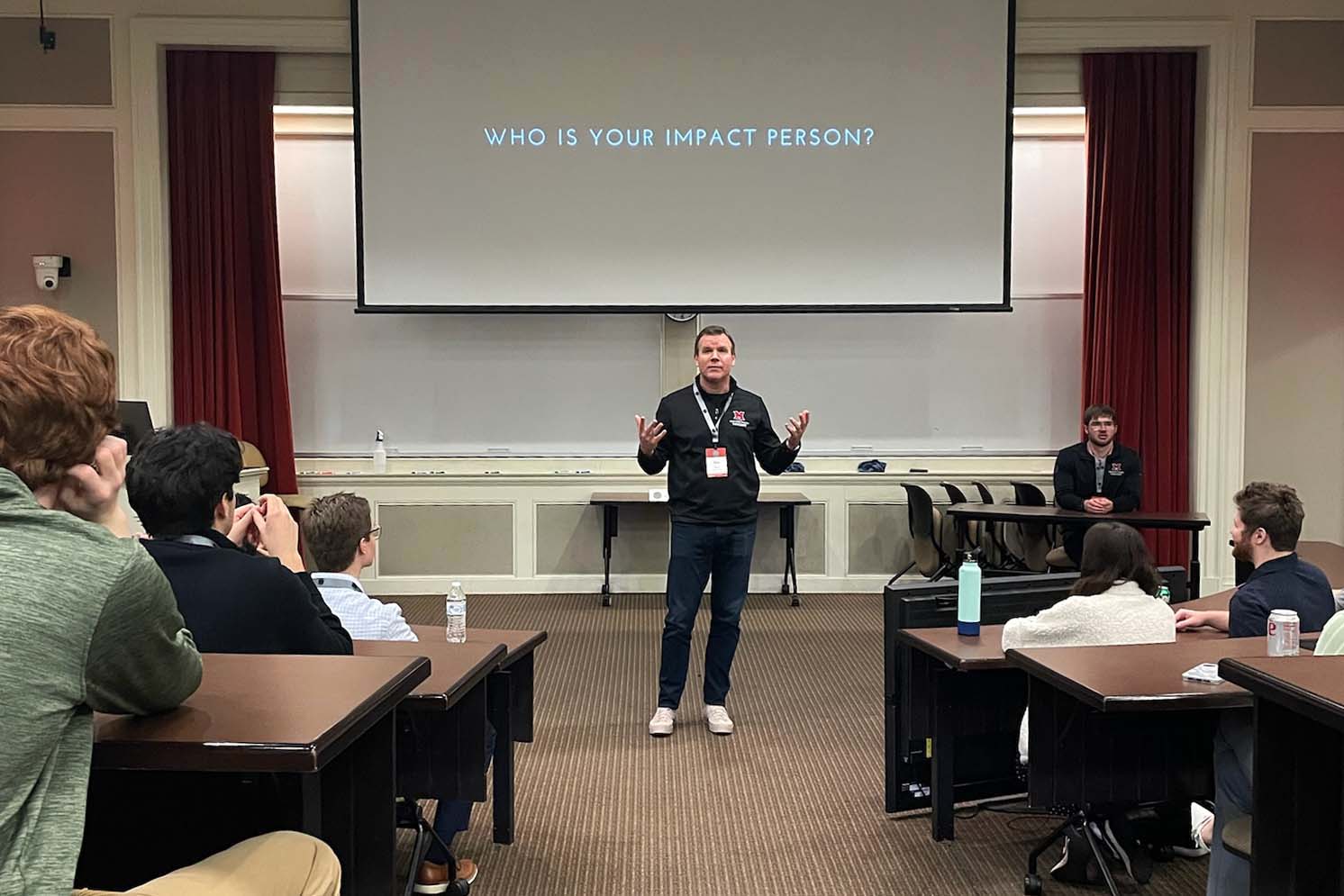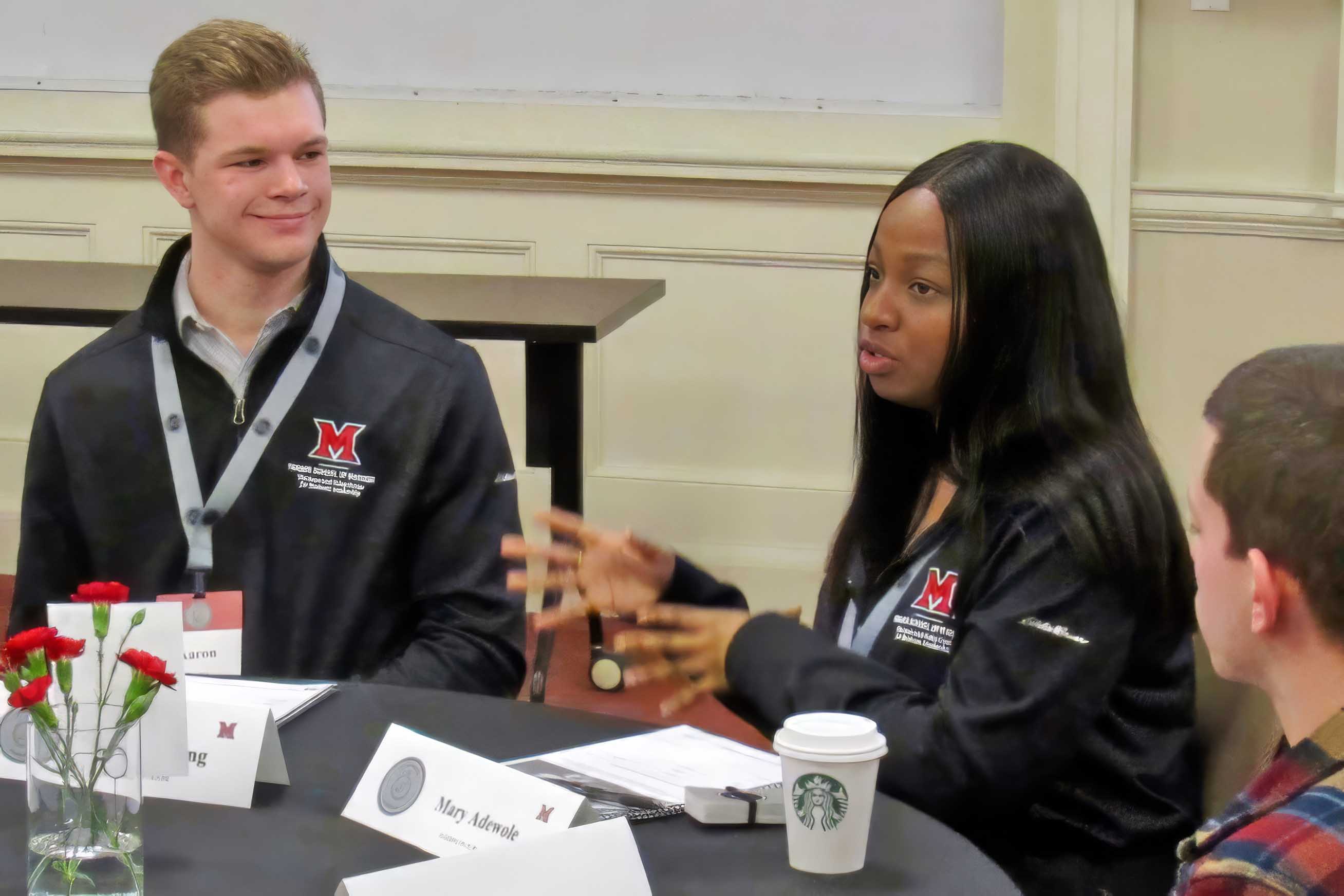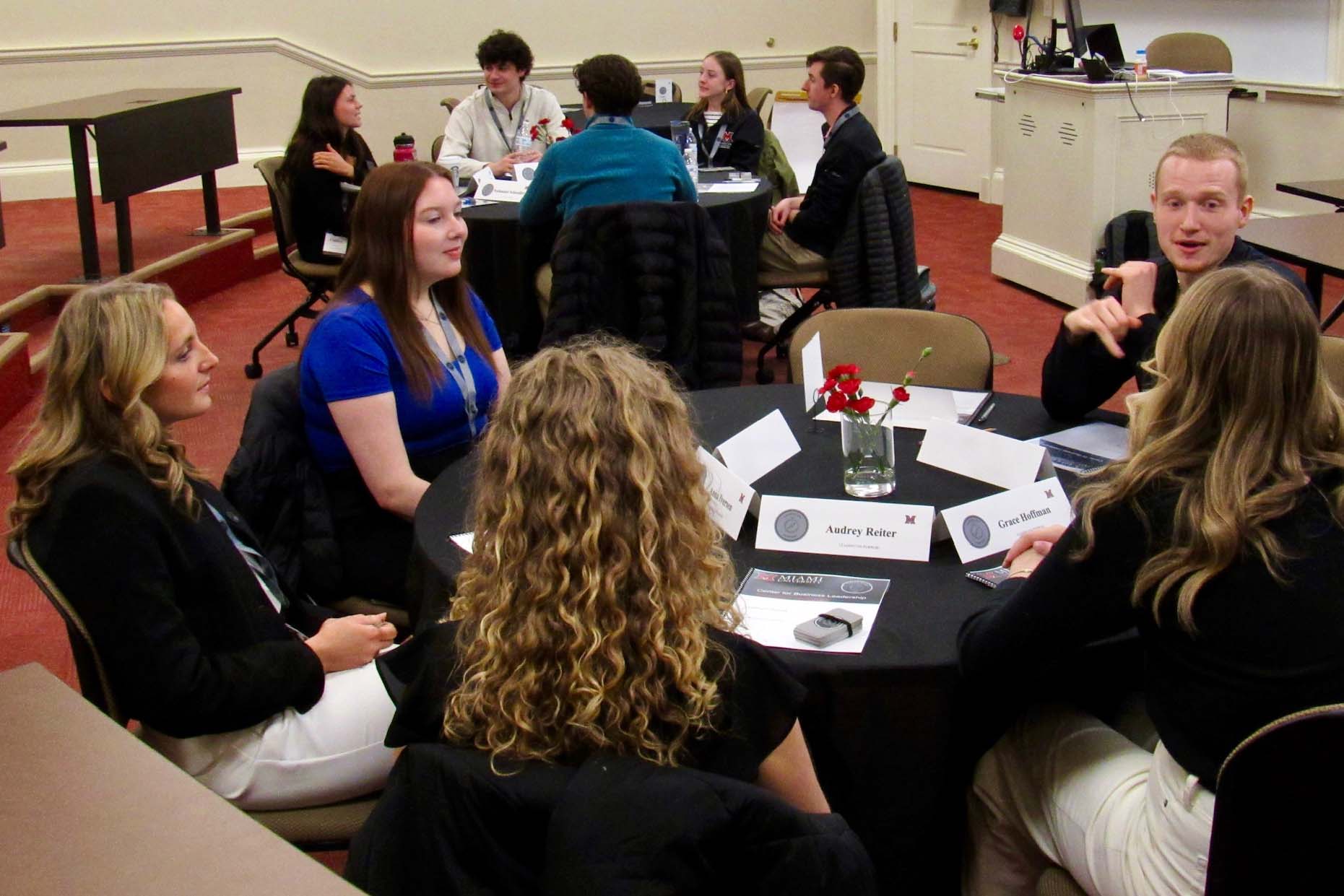Leading on Purpose develops leaders for business and beyond
It's a one-day Center for Business Leadership seminar that students say has a profound impact upon them

Leading on Purpose develops leaders for business and beyond
A few years ago, Jack Zenger, a well-known expert in leadership development, said that research among his company’s 17,000 clients indicated that while many had their first leadership role by age 30, the average age at which they received their first leadership training was 42.
The Isaac and Oxley Center for Business Leadership at the Farmer School of Business held its third annual Leading on Purpose Experience earlier this month to help Miami University students get that training before they are 22.
“It's a leadership training seminar where you can build your leadership, where you learn how to apply your strengths and your weaknesses to learn how to be a better leader,” Claire Reasoner said.
The sophomore Human Capital Management and Leadership major came to last year’s seminar as a first-year Economics major. “I came in wanting to do a four-year master's in Economics, and I realized how much math it involved. And I was like, ‘Well, now I don't want to do it anymore,’” Reasoner said. “I went to the seminar with no expectations. I was listening to Dan (Docherty) talking about his experience leaving the C-suite of the company he worked for and going back to get his PhD in his 40s, and I realized while listening to him talking about neuroscience in the way that every conversation sparks a moment of impact, that whatever it was that the Center for Business Leadership did, but I knew it was what I wanted to do. I didn't quite know how it fit into my life and my purpose, but I knew it was something I needed to figure out and pursue.”
Docherty and Megan Gerhardt are both professors of leadership who also provide industry-level leadership training for companies around the world. Both say there's nothing like seeing students start to embrace these ideas at this critical early stage of their life and career.
“We created Leading on Purpose based on the leadership development activities that have had the most impact on Dan and I personally and professionally. To provide students a chance to understand what matters most to them and why, and then help coach them on how to communicate that in an interview and use it in their career and life decisions – that's powerful," Gerhardt said.
“The most impactful part was the process of finding your ‘why’ statement. I've done a lot of work on core values and how that can be used in leadership, but I hadn't thought about necessarily the why,” sophomore Biology major Emma Custer said. “That was really powerful for me, because then I could say ‘This is why I'm doing this.’ So, if I'm having a hard time or not feeling great as a leader, I can say, ‘Okay, this is my why. Start here, and then we can build from there.’”
“The biggest thing I took away is leadership is a journey, and there's no set, clear path for each person to take. It's different because we're all different people. We all have different paths and beliefs and values in life,” senior Accountancy and Finance major Gina Cardinale said. “I think it really opened my perspective to the different types of leadership, in the way that it's not a black and white kind of thing. I used to be very like black and white with a lot of different things, but now I'm growing more into a gray area where I can be more flexible with myself, do different challenges, and continue to learn more about myself.”
Much of the day’s training and discussion is led by CBL student fellows, certified peer leadership coaches who took part in the training in a previous year and pass on their knowledge and experience to others.
“I’m a resident assistant, and I have two favorite days of the year. The first is the day my first-year students move in. The second is the day of Leading on Purpose,” senior Zachary Roemer said. “The last session of the day is when people stand up and share their purpose statement. I look over at our fellows and see their faces as the people they've coached all day speak, and you can see them nod, thinking, ‘Yeah, that's that person. Everything that they've said today leans into that. That's who they are.’”
“You see it when you're in organizations that don't really know how best to motivate their audience. I know that for a lot of people, management ability seems ambiguous – you either have it or you don't – but it can be developed, and I've seen how much I've changed from it,” Reasoner said. “I've seen how other fellows lead, and it's inspiring to know that I'm surrounded by some of the best leadership-trained college students in the Midwest. Everything runs more smoothly when you have a good management team.”
“I think when you find something that fits your why and fits your purpose, you buy in really heavily, you get excited about it, and you do great things,” Roemer said. “That's why I love Leading on Purpose.”


